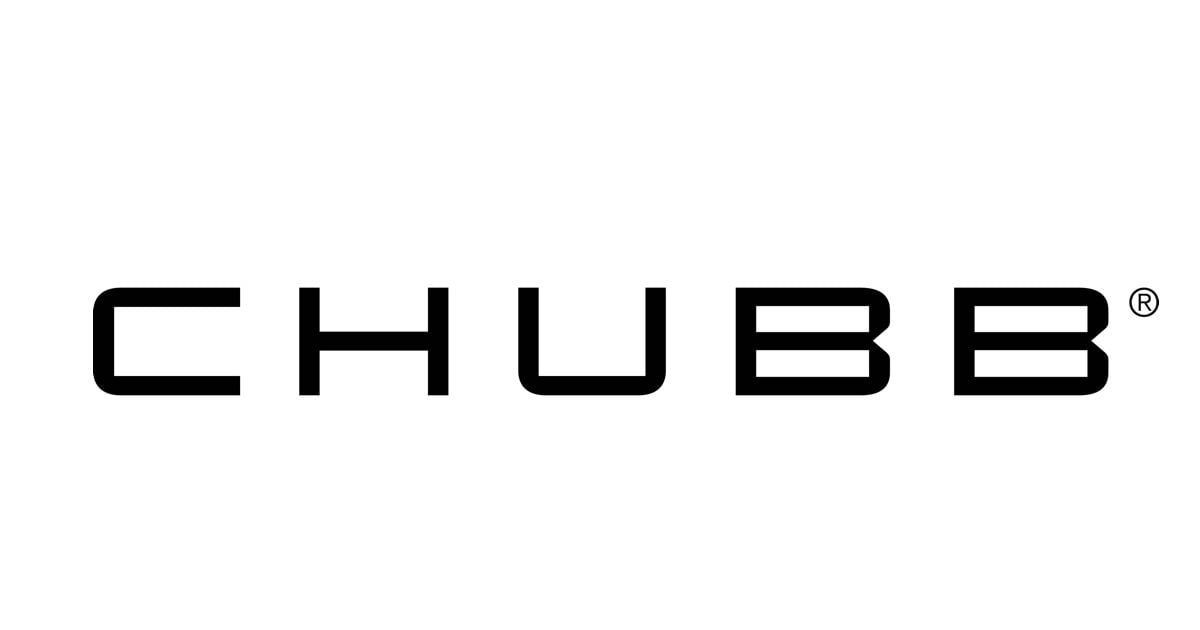Key takeaways
Chubb, The Andover Companies and USAA received the highest ratings in our analysis of home insurers in Rhode Island.
Amica is the best cheap insurer in Rhode Island, with a star rating of 4.7 and an average annual premium of $1,350.
Chubb, The Andover Companies and USAA are the best home insurance companies in Rhode Island, according to our analysis.
To help you find the best home insurance in Rhode Island, we gathered and analyzed data from insurance companies across the state. These are the insurers that earned 4.4 stars or more.
Rates are based on a sample homeowner with no recent claims, $300,000 of dwelling coverage, $300,000 of liability coverage and a $1,000 deductible.
Company | NerdWallet star rating | Average annual rate |
|---|---|---|
Not available | ||
$2,685 | ||
$1,350 | ||
Not available | ||
$2,375 | ||
Not available | ||
USAA* | Not available | |
*USAA membership is open only to active military, veterans, some federal employees and their families. | ||
Get home insurance quotes in minutes
Answer a few questions to see custom quotes and find the right policy for you.The best homeowners insurance companies in Rhode Island
Below are more details about the best homeowners insurance companies in Rhode Island.
Note: Some insurance companies included in this article may have made changes in their underwriting practices and no longer issue new policies in your state.

Chubb
- Far fewer consumer complaints than expected for a company of its size.
- Standard coverage includes features that many companies offer only as extras.
- Perks to help you protect your home.
- Most consumers can't get a quote online and will instead need to contact a local agent.
Chubb offers coverage other insurers often charge extra for. For example, the company’s policies include extended replacement cost coverage in case it costs more than your dwelling limit to rebuild after a disaster. Chubb’s standard policies also cover water damage from backed-up sewers and drains.
Policyholders with secondary or seasonal homes in Rhode Island are eligible for the company’s Property Manager service at no charge. With this service, a Chubb representative will check your home after a hurricane and report its condition to you. They can also help prevent further damage and submit a claim on your behalf.
» READ MORE: Chubb homeowners insurance review

Andover Companies
- Far fewer consumer complaints than expected.
- Includes more generous dwelling and personal property coverage than most insurers.
- Many additional coverage options to choose from.
- Limited online experience.
The Andover Companies’ home insurance generally comes with more coverage than provided by a standard home insurance policy. In particular, Andover stands out for providing guaranteed replacement cost coverage for most homes. This means Andover will pay to rebuild your home after a covered claim, no matter what it costs.
Most Andover policies also include replacement cost coverage for your personal belongings, which means you’ll get enough to buy brand-new stuff after a covered claim. You can add coverage for valuables like jewelry or firearms, or to replace refrigerated food you have to throw out after a covered power outage.
» READ MORE: Andover Companies homeowners insurance review

Amica
- High customer satisfaction ratings and low consumer complaints.
- Platinum Choice package offers extra coverage.
- Dividend policies can return a portion of your premiums.
- You can start a quote online but may have to finish the buying process by phone.
Amica shines when it comes to customer service. It draws a very low rate of complaints compared to other insurers, according to the National Association of Insurance Commissioners. Amica also earned high marks in two recent J.D. Power surveys about home insurance and customer satisfaction.
The company stands out for its broad range of coverage options. For example, you can customize your policy with extra coverage above your dwelling limit. You may also want to add coverage for identity theft or damage from backed-up drains.
» READ MORE: Amica homeowners insurance review

Cincinnati Insurance
- Various coverage options.
- Far fewer complaints than expected for a company of its size.
- Coverage available for higher-value homes.
- No online quotes.
- Very little information on website.
If you want to support an insurer that values sustainability, consider Cincinnati Insurance. In recent years, the insurer has cut fossil fuel emissions from both its facilities and company vehicles. When you buy Cincinnati home insurance, you may be able to add a “green upgrade” endorsement. With this coverage, you can use eco-friendly materials to repair or rebuild your home after a claim.
The company offers a variety of other options, including comprehensive coverage for high-value homes. You may be able to add coverage for things like identity theft, personal cyber attacks or certain types of water damage.
» READ MORE: Cincinnati homeowners insurance review
Allstate
- Lots of discounts to help you save.
- Home-sharing coverage available.
- Many ways to customize your coverage.
- Ranked below average for consumer satisfaction in recent J.D. Power studies.
Allstate offers lots of ways to customize your policy, including replacement cost coverage for your personal property and coverage for water damage caused by backed-up drains. Other options may include home-sharing coverage and reimbursement for replacing damaged items with energy-efficient versions.
You might be able to upgrade your policy with the Enhanced Package. One benefit of this package is Deductible Rewards, which takes $100 off your deductible when you sign up, plus an additional $100 off for each year you go without filing a claim. If you do file a claim, your rates won’t go up.
» READ MORE: Allstate homeowners insurance review
Travelers
- User-friendly website.
- Coverage and discounts for eco-friendly homeowners.
- Doesn’t insure mobile or manufactured homes.
- Poorly rated Android app.
Travelers offers a robust online experience. You can use the website to get a homeowners insurance quote, file and track claims, make payments, and learn about insurance basics.
Its coverage offerings are similarly strong. For example, you may be able to add extra coverage in case the dwelling limit on your home isn’t enough to rebuild your house after a disaster. You can also add coverage for water damage caused by a backed-up sewer or drain. One unique option is Travelers’ green home coverage, which pays extra if you want to use eco-friendly materials when repairing or rebuilding your home after a covered claim.
» READ MORE:Travelers homeowners insurance review

USAA
- Policies include standard coverage that often costs extra elsewhere.
- Fewer customer complaints to state regulators than expected for a company of its size.
- Perks for military homeowners.
- Available only to active military members, veterans, some federal employees and their families.
USAA sells homeowners insurance to active military members, veterans, some federal employees and their families. If that’s you, you may want to consider USAA. The company offers some perks for members of the military, like deductible-free coverage for military uniforms and equipment.
USAA homeowners insurance has certain features that many insurers charge extra for. For example, USAA covers your personal belongings on a replacement cost basis. Many companies pay only what your items are worth at the time of the claim.
» READ MORE: USAA homeowners insurance review
- See all NerdWallet home insurance reviews
How much does homeowners insurance cost in Rhode Island?
The average annual cost of home insurance in Rhode Island is $2,080. That’s nearly the same as the national average of $2,110.
In most states, including Rhode Island, many insurers use your credit-based insurance score to help set rates. Your insurance score is similar but not identical to your traditional credit score.
In Rhode Island, those with poor credit pay an average of $3,475 per year for homeowners insurance, according to NerdWallet’s rate analysis. That’s 67% more than those with good credit.
Average cost of homeowners insurance in Rhode Island by city
How much you pay for homeowners insurance in Rhode Island depends on where you live. For instance, the average cost of home insurance in Providence is $2,420 per year, while homeowners in Newport pay $2,455 per year, on average.
City | Average annual rate | Average monthly rate |
|---|---|---|
Barrington | $1,720 | $143 |
Bristol | $2,240 | $187 |
Central Falls | $2,035 | $170 |
Coventry | $2,390 | $199 |
Cranston | $1,940 | $162 |
Cumberland | $1,865 | $155 |
East Greenwich | $2,425 | $202 |
East Providence | $2,075 | $173 |
Johnston | $2,050 | $171 |
Lincoln | $2,075 | $173 |
Middletown | $1,875 | $156 |
Newport | $1,870 | $156 |
North Kingstown | $2,375 | $198 |
North Providence | $1,905 | $159 |
Pawtucket | $2,050 | $171 |
Portsmouth | $2,260 | $188 |
Providence | $2,420 | $202 |
Riverside | $2,075 | $173 |
Smithfield | $1,900 | $158 |
Tiverton | $1,840 | $153 |
Wakefield | $2,005 | $167 |
Warwick | $2,455 | $205 |
West Warwick | $2,375 | $198 |
Westerly | $2,090 | $174 |
Woonsocket | $1,955 | $163 |
The cheapest home insurance in Rhode Island
Here are the insurers we found with average annual rates below the Rhode Island average of $2,080.
Company | NerdWallet star rating | Average annual rate |
|---|---|---|
NLC Insurance | Not rated | $1,125 |
$1,350 | ||
Narragansett Bay | Not rated | $1,730 |
Common risks for Rhode Island homeowners
Here are a few of the most common risks you might face as a homeowner in Rhode Island
Flooding
Home insurance typically doesn't cover flood damage. If you’re concerned about flood damage, consider buying flood insurance. You can buy flood insurance at any time, but there’s typically a 30-day waiting period before the coverage takes effect.
To check your flood risk, start by looking up your address on the Federal Emergency Management Agency's flood maps. However, FEMA’s maps don’t always capture all types of flood risk. You may want to check another source, like First Street, a private company that models climate hazards. Enter your address at the top of the page to see your home’s flood risk rating on a scale of 1 to 10.
Winter storms and nor’easters
Homeowners insurance typically covers most damage caused by winter storms, but your policy may have limitations or exclusions. For example, water damage caused by snowmelt may only be covered by a separate flood insurance policy.
Coastal storms and hurricanes
There are two primary risks associated with coastal storms and hurricanes: wind and flooding. Flood damage, as discussed above, is not included in standard homeowners insurance policies. If you live in a coastal area, consider buying flood insurance.
You may have a separate hurricane deductible that kicks in when a hurricane warning is issued and remains in effect for 24 hours. In Rhode Island, your hurricane deductible can be a flat rate or a percentage of your dwelling coverage limit (or a combination of the two). Either way, it can’t exceed 5% of your home’s insured value. So if your home has $300,000 worth of dwelling coverage, you could have a hurricane deductible up to $15,000.
Rhode Island department of insurance
The Insurance Division of the state's Department of Business Regulation oversees the insurance industry in Rhode Island. In addition to providing answers to common questions about insurance, the agency's website also includes an online form that allows you to file a complaint against your insurer. Contact the division with questions by email at DBR.Insurance@dbr.ri.gov or by phone at 401-462-9520.
How we rate homeowners insurance
NerdWallet’s star ratings reward companies for consumer-first features and practices. We evaluate factors such as consumer experience, coverage, discounts and financial strength.
In our research, we analyzed:
More than 270 million homeowners insurance rates.
More than 100 insurance companies.
Nearly 200 homeowner profiles.
View our complete homeowners insurance rating methodology.
- Find home insurance in other states
Frequently asked questions
Is homeowners insurance required in Rhode Island?
Is homeowners insurance required in Rhode Island?
Homeowners insurance isn't required by Rhode Island state law. However, your lender may require you to buy home insurance. For more information, read Is Homeowners Insurance Required?
How can I save money on homeowners insurance in Rhode Island?
How can I save money on homeowners insurance in Rhode Island?
There are several ways to save money on homeowners insurance in Rhode Island:
Shop around to make sure you’re getting the best rate.
Choose a higher deductible. In case of any claims, you’ll pay more out of pocket, but your premiums will be lower.
Bundle your home and auto insurance for a lower overall rate. See the best home and auto insurance bundles.
Ask your insurer if you qualify for any home insurance discounts.
Star rating methodology
NerdWallet’s homeowners insurance ratings reward companies for customer-first features and practices. Ratings are based on weighted averages of scores in several categories, including financial strength, consumer complaints, coverage, discounts, claims process and website functionality. These ratings are a guide, but we encourage you to shop around and compare several insurance quotes to find the best rate for you. NerdWallet does not receive compensation for any reviews or star ratings.
Here’s how we weighted each category to come up with our list of the best home insurance companies:
Consumer experience (40%).
Financial strength (30%).
Coverage (25%).
Discounts (5%).
Read our full home insurance ratings methodology for more details.
Homeowners insurance rates methodology
NerdWallet calculated median rates for 40-year-old homeowners from various insurance companies in the 25 largest cities in each U.S. state by population. All rates are rounded to the nearest $5.
Sample homeowners were nonsmokers with good credit living in a single-family, two-story home built in 1984. They had a $1,000 deductible and the following coverage limits:
$300,000 in dwelling coverage.
$30,000 in other structures coverage.
$150,000 in personal property coverage.
$60,000 in loss of use coverage.
$300,000 in liability coverage.
$1,000 in medical payments coverage.
We made minor changes to the sample policy in cases where rates for the above coverage limits or deductibles weren’t available.
In states where credit is a rating factor, we changed the credit tier from “good” to “poor,” as reported to the insurer, to see rates for homeowners with poor credit.
These are sample rates generated through Quadrant Information Services. Your own rates will be different.
Complaint methodology
NerdWallet examined complaints received by state insurance regulators and reported to the National Association of Insurance Commissioners in 2022-2024. To assess how insurers compare with one another, the NAIC calculates a complaint index each year for each subsidiary, measuring its share of total complaints relative to its size, or share of total premiums in the industry. To evaluate a company’s complaint history, NerdWallet calculated a similar index for each insurer, weighted by market shares of each subsidiary, over the three-year period.
NerdWallet conducts its data analysis and reaches conclusions independently and without the endorsement of the NAIC. Ratios are determined separately for auto, home (including renters and condo) and life insurance.

